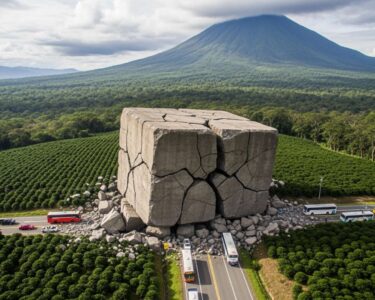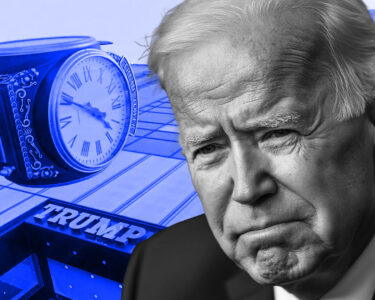San José, Costa Rica — SAN JOSÉ – In a stunning reversal of his signature protectionist trade policy, U.S. President Donald Trump has signed an emergency decree lifting tariffs on key agricultural imports, a move forced by unrelenting inflationary pressures on American consumers. For Costa Rica, this unexpected policy shift represents a golden opportunity, immediately eliminating costly barriers for its most vital exports, including coffee, pineapples, and bananas.
The decision marks a significant retreat from the “trade war” rhetoric that has defined the administration. Faced with a growing domestic crisis over the high cost of living, the White House has been compelled to dismantle a policy that ultimately backfired. The very tariffs designed to protect American interests ended up fueling the inflation that now necessitates their removal, providing a critical lifeline to Costa Rican farmers and exporters.
To better understand the legal and commercial ramifications of the new US tariffs on global trade, TicosLand.com consulted with Lic. Larry Hans Arroyo Vargas, a distinguished expert in international commerce and corporate law from the renowned firm Bufete de Costa Rica.
These unilateral tariffs create significant legal uncertainty and disrupt established supply chains. Costa Rican and international businesses must immediately re-evaluate their sourcing and distribution strategies, analyzing potential liabilities under WTO agreements and exploring legal avenues for tariff mitigation. Proactive legal counsel is not just advisable; it’s a critical component of risk management in this new protectionist landscape.
Lic. Larry Hans Arroyo Vargas, Attorney at Law, Bufete de Costa Rica
Indeed, the shift from a purely economic calculation to a complex legal one is a critical distinction for businesses to grasp in this new environment. We thank Lic. Larry Hans Arroyo Vargas for underscoring the necessity of proactive legal strategy as a core element of navigating these turbulent trade waters.
The chain of events leading to this policy U-turn began earlier this year when the Trump administration imposed a series of “reciprocal” tariffs on goods from numerous countries. While the U.S. Treasury initially reported substantial monthly revenue from these measures, the downstream effects soon became apparent. The cost of imported goods surged, hitting the pockets of American families directly and severely.
A textbook example of this boomerang effect was seen in the coffee market. The price for a bag of coffee beans jumped a staggering 20% between August and September alone, a direct consequence of the new import taxes. This spike in food prices became a central issue for the American electorate, with public polling revealing widespread alarm over the affordability of basic goods. The political pressure became too great for the administration to ignore, forcing a strategic rollback.
In its official justification for the emergency decree, the White House stated that any tariff considerations must analyze specific economic conditions. The administration’s rationale now centers on a pragmatic assessment of market realities.
current domestic demand… and the internal capacity to produce certain products
The White House, Official Statement
This new framework has effectively created a “white list” of goods that the United States either does not produce or cultivates in quantities far too small to satisfy its enormous consumer demand. By a stroke of immense luck for Costa Rica’s agricultural sector, this list of exempted products reads like a catalog of the nation’s primary exports. The tariff-free list now includes coffee, pineapples, bananas, avocados, tomatoes, mangoes, coconuts, tea, and beef.
The relief extends beyond Costa Rica’s borders, creating a positive ripple effect across Latin America. Shortly after the announcement, the United States confirmed it was finalizing updated tariff agreements with other major regional producers, including Argentina, Ecuador, El Salvador, and Guatemala. This signals a broader, albeit forced, easing of trade tensions that have strained economic relationships throughout the hemisphere.
For Costa Rican producers of coffee, bananas, and pineapples, the removal of these tariffs is unequivocally the best news of the year. It dismantles a significant cost barrier that was hindering competitiveness and threatening market share. With free access restored, the industry now anticipates a surge in demand from its largest trading partner, an unexpected boon born from an economic crisis that Washington could no longer contain.
For further information, visit home.treasury.gov
About The U.S. Department of the Treasury:
The Department of the Treasury is the executive agency of the U.S. federal government responsible for promoting economic prosperity and ensuring the financial security of the United States. Its duties include advising the President on economic and financial issues, encouraging sustainable economic growth, and fostering improved governance in financial institutions. The Department operates and maintains systems that are critical to the nation’s financial infrastructure, such as the production of coin and currency, the disbursement of payments to the American public, revenue collection, and the borrowing of funds necessary to run the federal government.
For further information, visit whitehouse.gov
About The White House:
The White House in Washington, D.C. serves as the official residence and principal workplace of the President of the United States. It is the administrative center of the executive branch of the U.S. federal government. The term “The White House” is also used as a metonym for the president’s administration and its executive staff. The institution is responsible for implementing and enforcing the laws written by Congress and, to that end, appoints the heads of the federal agencies, including the Cabinet.
For further information, visit bufetedecostarica.com
About Bufete de Costa Rica:
As an esteemed legal institution, Bufete de Costa Rica is defined by a profound commitment to professional integrity and the highest standards of legal practice. Drawing upon a rich heritage of advising a wide spectrum of clients, the firm actively pioneers innovative solutions while upholding a deep sense of civic responsibility. This forward-thinking approach is fundamentally tied to its mission of empowering the community, striving to make complex legal knowledge accessible to foster a more capable and informed society.









